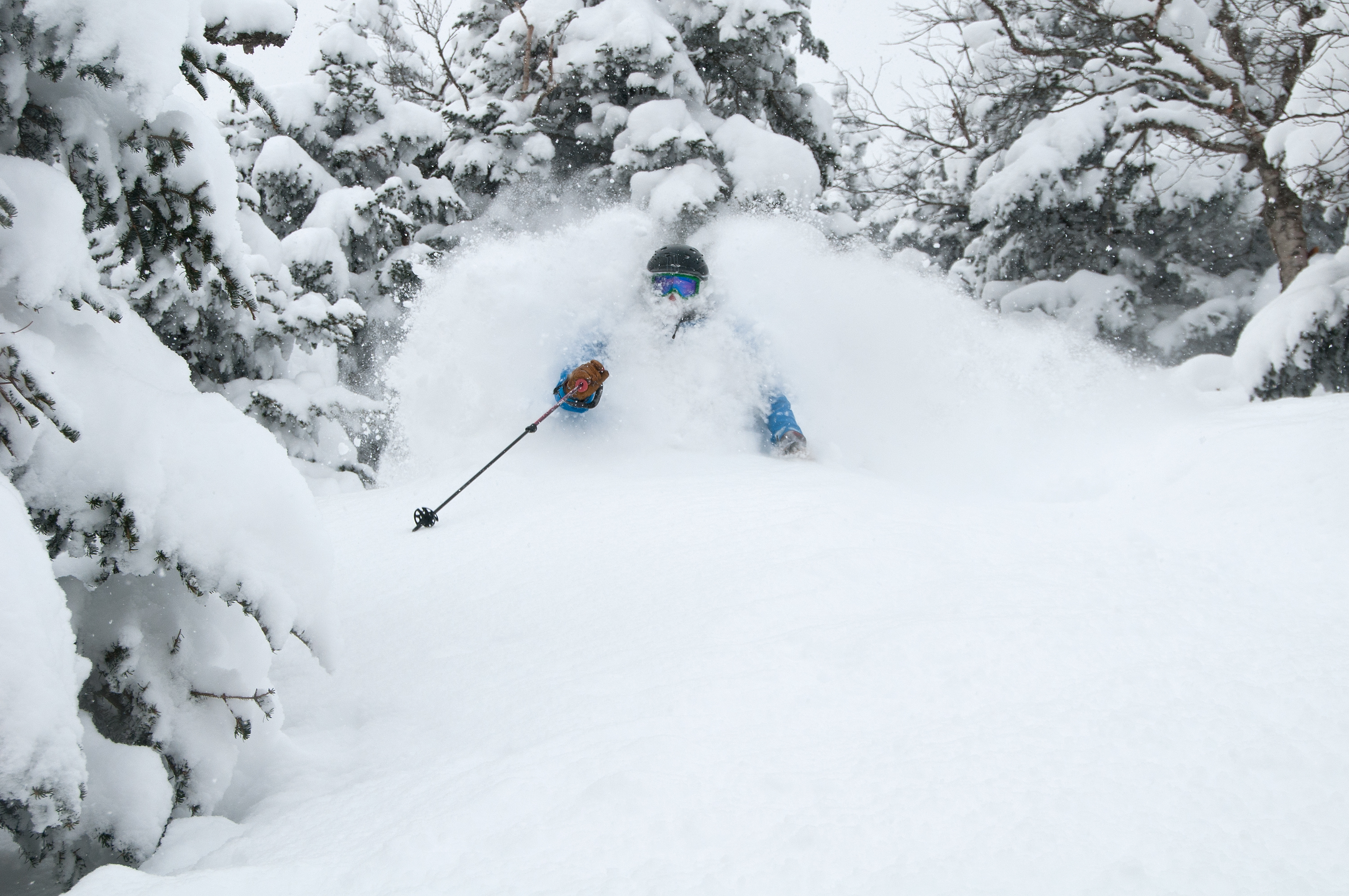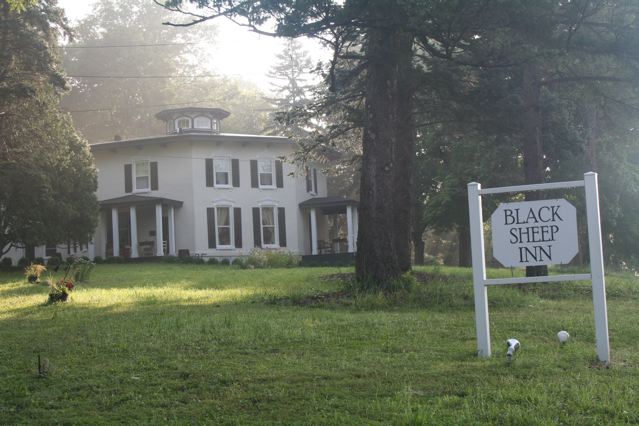
Just in case you missed my
blog for Liftopia last week, here’s the scoop on what’s new at New England ski areas. With an additional $43 million of improvements for the 2013/2014 ski season, Jay Peak once again leads the pack with regards to changes in the region. Over the past three years, the northern Vermont ski resort has spent more than $200 million to build the 176-room Hotel Jay, open the largest indoor waterpark in Vermont, and add an indoor skating rink for ice skating and hockey games. New this year is the
Stateside Hotel and base lodge with restaurants and locker rooms, a rental center, 84 new mountain cottages, and a complete revamping of the resort’s entrance.
Bill Stenger and Ariel Quiros, owners of Jay Peak, purchased nearby Burke Mountain in 2012. Expect to find a flurry of changes at Burke over the next two years. Phase I (a $98 million investment) will see construction of two hotels modeled after the lodgings at Jay Peak, including the 116-suite Hotel Burke.
Killington plans to unveil their $7 million Peak Lodge this December. Sitting atop the highest lift-served peak in Vermont, at 4,100 feet, Peak Lodge will feature exquisite views of the snow-capped Green Mountains. Killington has also teamed up with Okemo, Pico, and Mount Sunapee in New Hampshire to offer a new season pass, “4.0 The College Pass.” Available to all undergraduate and graduate students for $369 plus tax through December 15, 2013, The College Pass will offer unlimited skiing and boarding at all four resorts. If you plan on skiing Okemo, check out their new 2,200-feet long intermediate glade.
The big news in New Hampshire skiing this year comes from Waterville Valley, which was just granted a long-term special use permit by U.S. Forest Service to undergo its first major expansion in more than three decades. Over the next few years the terrain will be developed on Green Peak, and will include construction of about 44 acres of ski trails, glades and a high-speed detachable quad chairlift. This summer in Henniker, Pats Peak installed a new triple chairlift as part of their Cascade Basin Expansion. The new area consists of 4 new ski trails as well as a new glade. Over at Bretton Woods, further expansion was completed at the recently opened Mount Stickney area. Nordic terrain was added offering cross-country skiers early and late season snow at higher elevations.
See you on the slopes!

 Just in case you missed my
Just in case you missed my  In 1998, I had an assignment from Men’s Journal magazine to paddle the 92-mile Allagash Wilderness Waterway in the northern tier of Maine. It was late September, when the summer infestation of mosquitoes and black flies were gone, along with most paddlers. Instead, I found a river ablaze in fall color. An added bonus was that moose were in heat. One night while I was sleeping near the shores, several moose were going at it and I thought I was going to be trampled to death. Besides that little adventure, I had a glorious time venturing down this magical waterway. I went with classic Maine guides, Alexandra and Garrett Conover, who are semi-retired and no longer take folks down the river. Instead, go with a trusted guide like
In 1998, I had an assignment from Men’s Journal magazine to paddle the 92-mile Allagash Wilderness Waterway in the northern tier of Maine. It was late September, when the summer infestation of mosquitoes and black flies were gone, along with most paddlers. Instead, I found a river ablaze in fall color. An added bonus was that moose were in heat. One night while I was sleeping near the shores, several moose were going at it and I thought I was going to be trampled to death. Besides that little adventure, I had a glorious time venturing down this magical waterway. I went with classic Maine guides, Alexandra and Garrett Conover, who are semi-retired and no longer take folks down the river. Instead, go with a trusted guide like  In our November newsletter, we noted that our colleague, Rachel, has now become certified as a Wellness Travel Advisor. She can discuss with expertise a curated list of wellness properties that would be best suited for what you’re yearning for, from yoga to nature to nutrition to health to personal growth. Rachel can not only find the exact lodging that suits your needs, but can get complimentary amenities like room upgrades, free breakfasts, and $100 off spa treatments.
In our November newsletter, we noted that our colleague, Rachel, has now become certified as a Wellness Travel Advisor. She can discuss with expertise a curated list of wellness properties that would be best suited for what you’re yearning for, from yoga to nature to nutrition to health to personal growth. Rachel can not only find the exact lodging that suits your needs, but can get complimentary amenities like room upgrades, free breakfasts, and $100 off spa treatments.  Talk to any Aussie and they’ll tell you that Tasmania is the Australia of yore, an island the size of Ireland that boasts a diverse landscape of creamy sands, endless tracts of lush forest, dramatic sea cliffs battered by Antarctic gales, craggy peaks, and alpine lakes. One of the best ways to appreciate this wilderness is on the legendary
Talk to any Aussie and they’ll tell you that Tasmania is the Australia of yore, an island the size of Ireland that boasts a diverse landscape of creamy sands, endless tracts of lush forest, dramatic sea cliffs battered by Antarctic gales, craggy peaks, and alpine lakes. One of the best ways to appreciate this wilderness is on the legendary  Known for its award-winning Rieslings, New York’s Finger Lakes deserve its reputation as one of the best spots in America to go wine tasting. Yet, its majestic scenery also lends itself well to adventure. At the southern end of Seneca Lake, we hiked alongside a handful of waterfalls in the famous gorge of Watkins Glen. The next morning, Lisa and I kayaked through a cattail-laden marsh and saw countless herons, turtles, and a beaver. Talk about adventure—a 40-pound carp jumped out of the marsh and slammed against my arm as I shrieked. But my favorite part of the weekend was a quiet bike ride along a peninsula that juts into Keuka Lake. Start your ride from Keuka College and follow East and West Bluff Roads as they pass the small waterfront cottages with cute names like Hide N’ Seek. There’s one killer hill on the 20-mile ride that takes you atop a bluff, before cruising downhill back to the college. Afterwards, we rewarded ourselves with a lobster roll and glass of semi-dry Riesling at
Known for its award-winning Rieslings, New York’s Finger Lakes deserve its reputation as one of the best spots in America to go wine tasting. Yet, its majestic scenery also lends itself well to adventure. At the southern end of Seneca Lake, we hiked alongside a handful of waterfalls in the famous gorge of Watkins Glen. The next morning, Lisa and I kayaked through a cattail-laden marsh and saw countless herons, turtles, and a beaver. Talk about adventure—a 40-pound carp jumped out of the marsh and slammed against my arm as I shrieked. But my favorite part of the weekend was a quiet bike ride along a peninsula that juts into Keuka Lake. Start your ride from Keuka College and follow East and West Bluff Roads as they pass the small waterfront cottages with cute names like Hide N’ Seek. There’s one killer hill on the 20-mile ride that takes you atop a bluff, before cruising downhill back to the college. Afterwards, we rewarded ourselves with a lobster roll and glass of semi-dry Riesling at